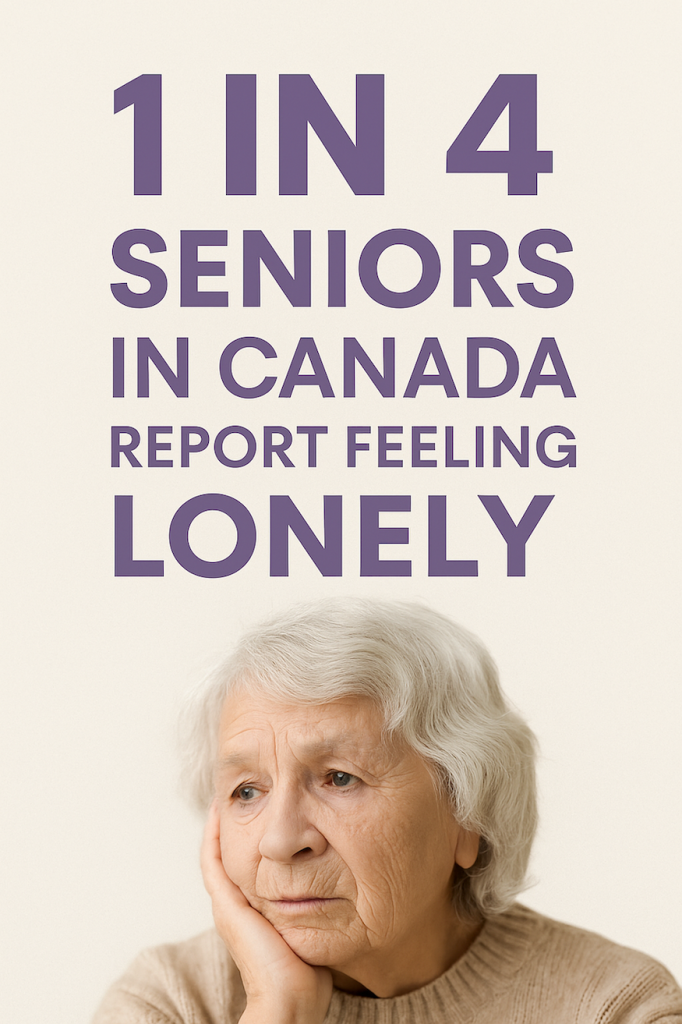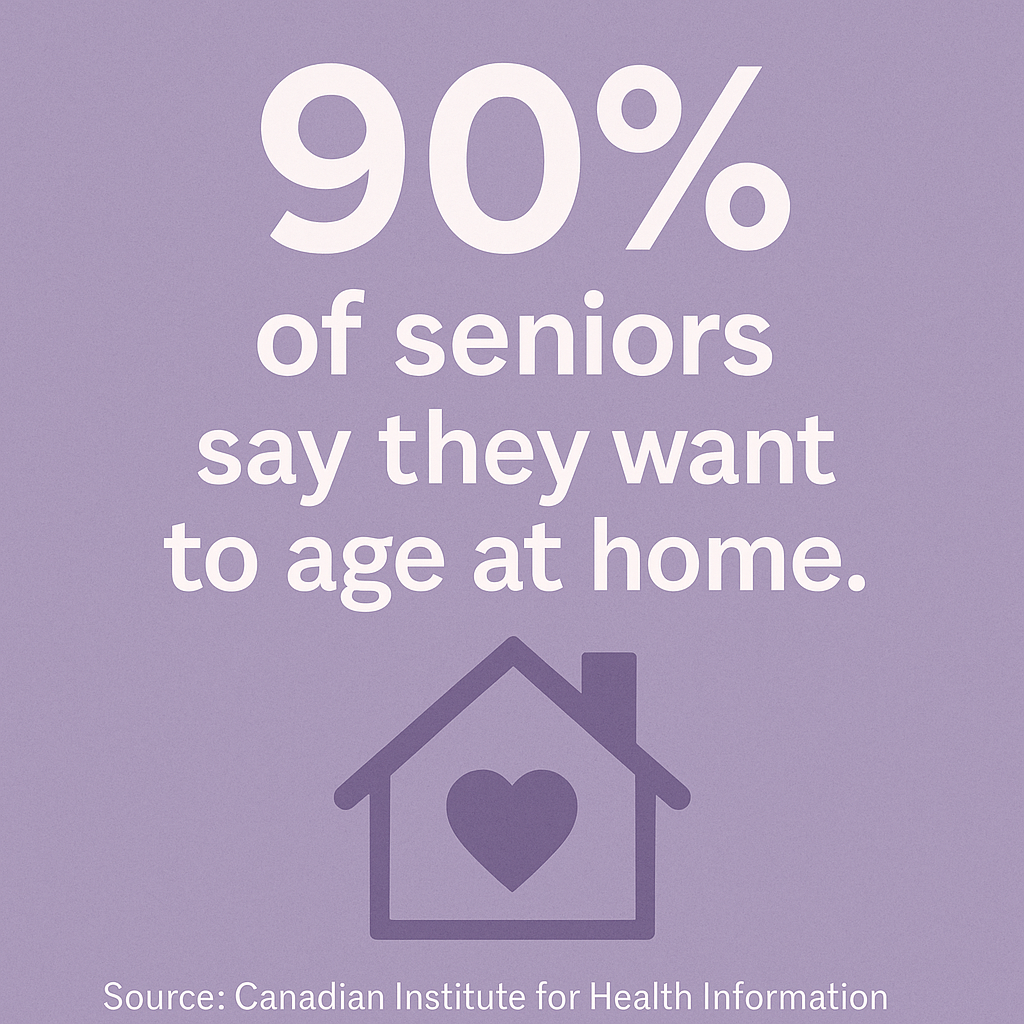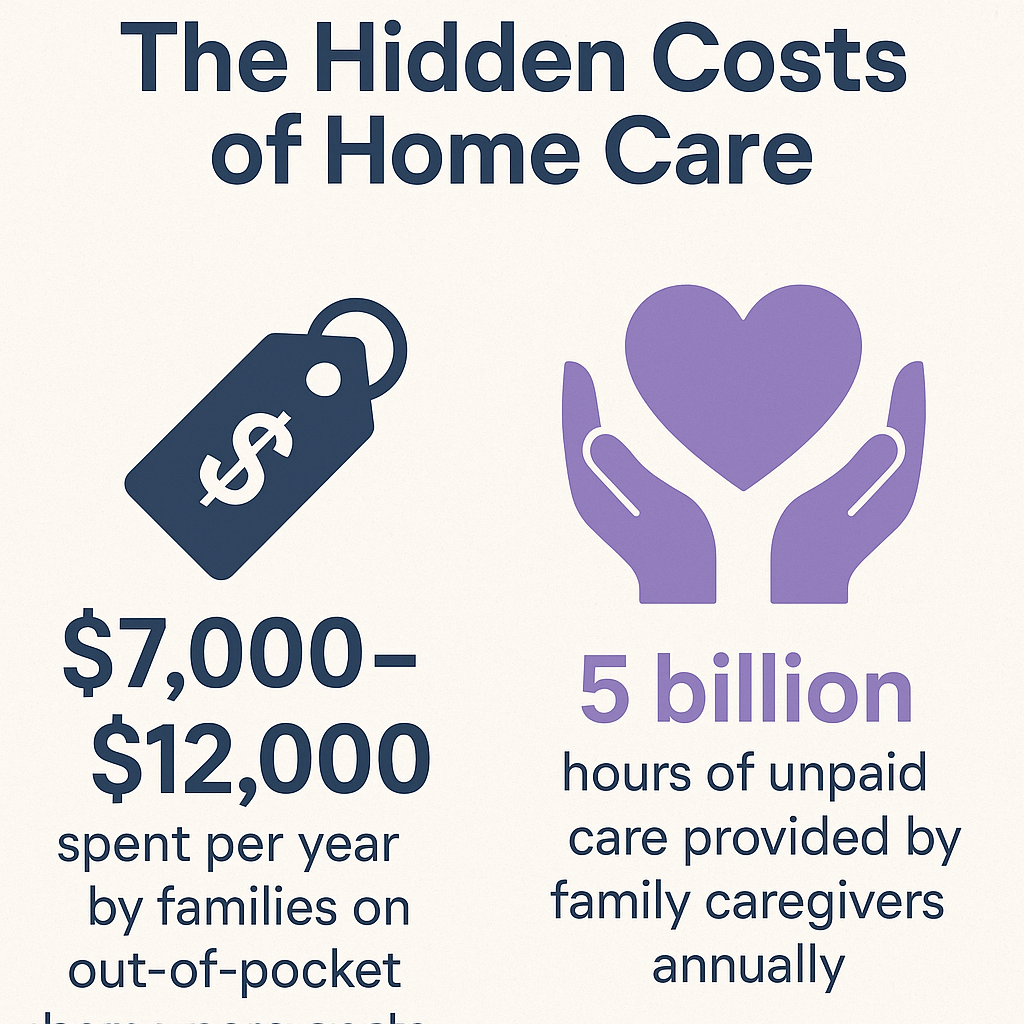
When people think of home care, the first things that come to mind are usually medical support, mobility assistance, or help with daily living tasks. While these services are essential, there’s another aspect of care that often goes overlooked: companionship.
For many seniors, loneliness is as much of a health risk as physical conditions. According to the National Institute on Aging, social isolation can increase the risk of premature death by up to 50%, placing it alongside smoking and obesity as a serious health concern. In Canada, nearly 1 in 4 seniors report feeling lonely, with the numbers even higher for those living alone.
Why Companionship Matters
-
- Improves Mental Health: Regular social interaction lowers the risk of depression and anxiety.
- Boosts Physical Health: Seniors who feel connected are more likely to stay active and maintain healthier routines.
- Enhances Safety: Companions notice subtle changes in mood, appetite, or behavior that could signal health issues.
- Builds Trust: Strong relationships between seniors and caregivers increase comfort, cooperation, and satisfaction with care.
Practical Ways to Provide Companionship
-
- Conversations that Count
Simple chats about family, hobbies, or memories can brighten a senior’s day and reduce feelings of isolation. - Shared Activities
Playing games, going for walks, or cooking together can create meaningful moments of connection. - Encouraging Independence
Supporting seniors in tasks they enjoy—like gardening or reading—helps maintain purpose and dignity. - Consistency Matters
Seeing the same caregiver regularly builds trust and strengthens emotional bonds.
- Conversations that Count
A Balanced Approach
Companionship doesn’t replace essential medical or daily care—it complements it. A caregiver’s technical skills ensure safety, while their ability to connect emotionally ensures dignity and joy. Together, they form the foundation of truly holistic care.
Looking Forward
As Canada’s senior population grows, the demand for companionship in home care will only increase. By recognizing the importance of emotional as well as physical support, we can create a care system that doesn’t just help seniors live longer—but live better.

